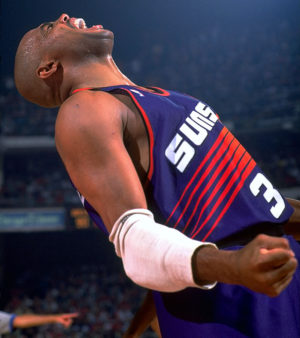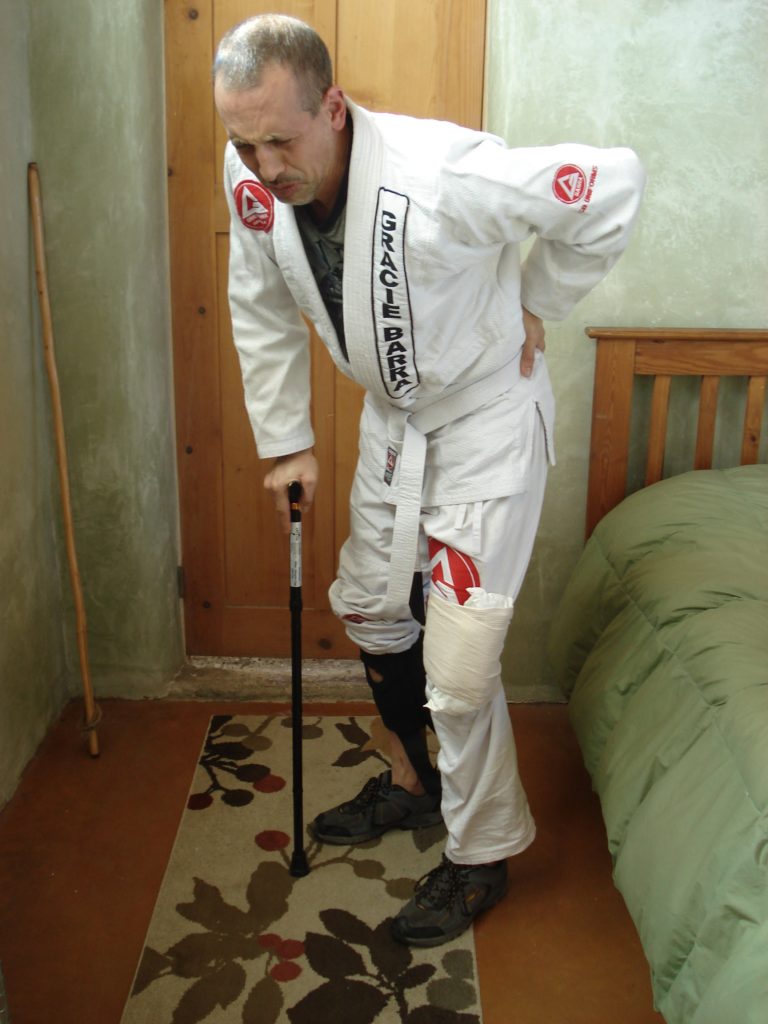
Leaders Play Hurt

I remember vividly sitting around the TV with my family in 1993 watching the Phoenix Suns in the NBA finals against the Chicago Bulls. Two things stand out most about this memory. Firstly – my mom screams while rooting for athletics. She can be a rowdy fan! Secondly was the awe I felt while watching Charles Barkley rise through an injury to lead the team.
This memory really stands out, because Charles Barkley was originally very excited to come to the Suns, hoping he wouldn’t have to be the team leader like he was for the 76ers. He was looking forward to being a strong support for Kevin Johnson and Dan Majerle without feeling like the buck always stopped with him.
But Charles ended up having to be the leader. I remember being a high school kid who felt let down by most the Suns players. They seemed to be playing scared and already defeated. I told my mom that Barkley was the only one that seemed to be playing with all his heart. He was hustling and making plays. He was drawing the team back around him emotionally.
He was doing all this while wearing a bulky bandage/brace on his elbow. They had to drain fluid from the joint before the game and steroid injections at half time to decrease the inflammation.
Charles Barkley was a leader to his team when for multiple reasons it would have been reasonable or even expected that a different player took up that leadership role. That series would have been a lot shorter and duller without Barkley’s presence.
I have recently learned the importance of playing hurt in my own life. The phrase “playing hurt” can carry the connotation of the unwise sacrifice of long term health in pursuit of short term gains. Like football players who play chalk full of pain meds and anti-inflammatory meds in order to push through injuries that unfortunately became a permanent, debilitating factor in their life long after the season is over.
That’s not what I’m saying we should do. I’m thinking more of the superpower moms have to get everything done even when they are sick and feeling like garbage. Not only is that super impressive, it is a sacrifice that blesses home life immensely.
My personal example comes from sustaining a rib injury shortly after starting Jiu-Jitsu. Unfortunately, for a rib injury to heal you pretty much need to stop doing physical things.
I did stop for over a month – twice. Both times I ended up feeling frustrated, slipping on my diet, putting on weight, and struggling with depression. I realized that the risk of worsening my physical injury or delaying my recovery was less than the emotional risk I faced by not training. So I’m back on the mats, trying to take it easy and play it smart, and it makes a huge difference in how I feel.

Here are a few tips on when and how to play hurt.
Remember – No pain, no gain… sometimes: We experience pain as a protective mechanism; however, I think as we have evolved, our minds have taken things too far and interpret anything uncomfortable as painful and potentially harmful. This leads to avoiding pushing against our comfort zones and living lives of limitation below our potential. Pay attention to how you feel, but learn how to differentiate between excuses or limitations and legitimate injuries requiring rest or treatment.
For me one of the most common ways this struggle presents itself is the discomfort of social anxiety. I have skipped class several times because I didn’t want to deal with unfamiliar people or a different school when mine was closed for a holiday. I know that wasn’t real pain and that I always feel much better after I push through it and get to class.
One of my coaches loves to run drills, because they challenge our strength and conditioning. These strenuous drills have taught me a lot about pushing through pain. There is a certain point in exertion when you gas out or your legs get wobbly, and you have to decide mentally how much you are going to push against the discomfort and fatigue.
I think in all areas of our life it is important to push ourselves outside of our comfort zones to achieve new levels of conditioning and expand our capabilities.
Adapt: Right after injuring my ribs every breath was extremely painful, and I really could not safely perform the drills and exercises. I took time off of the mats and just took notes from the sidelines to continue learning. Some of the techniques I have used most successfully were learned through note taking and visualization. You can read about that experience in this earlier blog I wrote.
A classmate of mine had a wrist injury. Rather than stop training, he literally shoved his hand through his belt to remind him not to use it and continued to train one handed. This not only protected his injury, but it also gave other areas an opportunity to develop more – like his legwork, using body pressure, and things like that. This potentially makes him a better-rounded Jiu-Jitsu player when all is said and done.
Adaptation in our personal lives means consistently doing what we can in ways that push us to grow.
I wrote a while ago about David Vobora and the Adaptive Training Foundation. It is a place where individuals with amputations or disabilities work out in the same gym as NFL players and other elite athletes. They can’t necessarily work out in the same ways, but there are ways for every one of us to adapt to make sure we continue to do what we can in order to continue developing.
Finally – Use a mentor: Outside perspective is so valuable in this process. For me it is first the loving support from Ashlee as she pushes me to go to class when I don’t feel like going due to struggling with anxiety and depression. Secondly, at the gym I have coaches and a professor looking out for me. They consistently check in on how I’m feeling, giving pointers on how to adapt, giving direction about positions to avoid, and things like that. They have more experience dealing with sports injuries and can help me know when to push a little and when I need to step back.
We should all engage in the process of receiving mentorship. We can do this by reading great authors, going to counseling, studying with a pastor, or hiring a coach or trainer. I recommend doing more than one of these and to make sure you are growing in areas important to you and learning from people with fruit on the tree who have the types of results you want.
To wrap up I would like to invite you to share something you have learned or accomplished when you “played hurt”, when you showed up for someone or something even though it wasn’t easy, or when you broke through a comfort zone. Send us an email, leave a comment, or post on our Facebook page. We would love to share your story so more people can be inspired by you!

